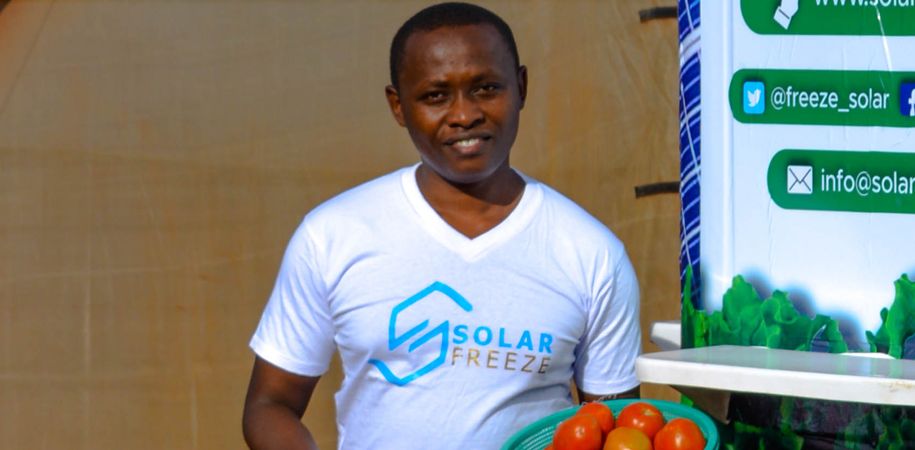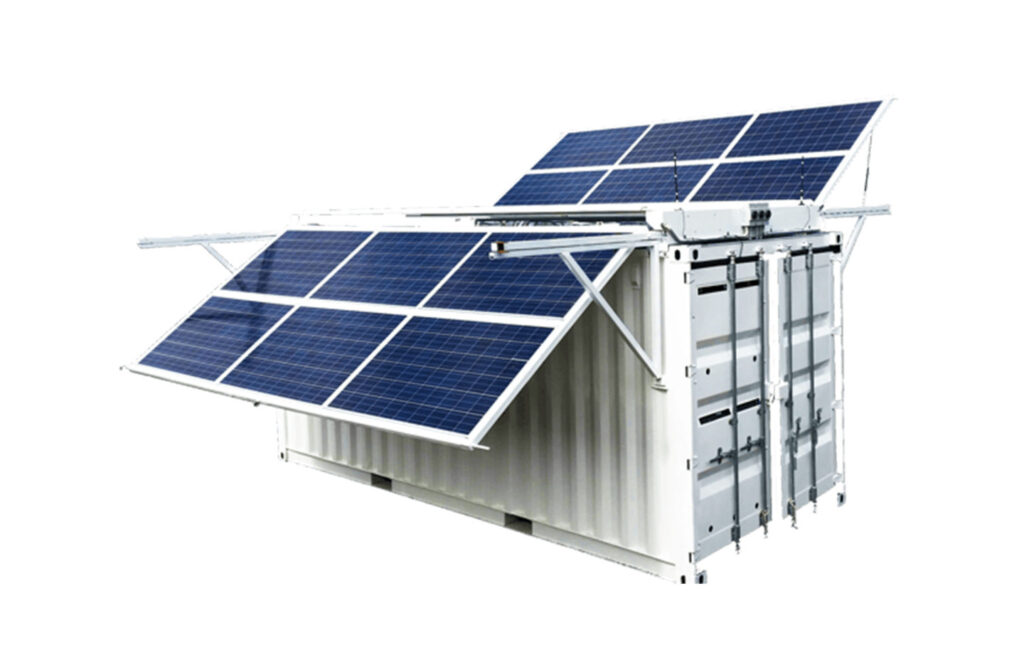Solar Freeze is Cutting Africa’s Food Losses through its Integrated Post-Harvest Management Approach

There is a ton of food produced worldwide that is never eaten. The value of these food losses and waste in poor nations alone is over $300 billion. The main cause of this is a lack of refrigeration and storage facilities, which results in a short shelf life for produce and animal products. Annual food loss in Africa has been estimated to about 40% to 50%. This has mostly been attributed to lack of refrigeration, poor market access and other related factors. A simple solution to this problem is refrigeration, and for Dysmus Kisilu, Founder, this is what his Solar Freeze is about.
Dysmus Kisilu and his team founded Solar Freeze in 2016 to help African farmers reduce the huge challenge of post-harvest loss. Solar Freeze is pioneering mobile cold storage units powered by renewable energy for rural smallholder farmers.
Food loss has been the norm for millions of small rural farmers across Kenya and the rest of Africa, and rural communities are devastated as a result of these losses. In addition to contributing to poor farmer incomes, it has a significant role in the prevalence of hunger, malnutrition, and generalized economic hardship in rural Africa. The majority of the world’s poorest people, who are dependent on agriculture and live in rural areas, are concentrated in Sub-Saharan Africa.
Relatively, very little has been done to curb Africa’s post-harvest food loss. The UN Food and Agriculture Organization estimates that during the past 30 years, 95% of agricultural research investments in sub-Saharan Africa have been focused on boosting productivity and only 5% have been focused on minimizing food losses.
However, with tech gaining ground in the region, Solar Freeze is leveraging an integrated approach to Postharvest management, and helping rural farmers in Kenya access cooling technologies.
A Look at What Solar Freeze Offers
Rural smallholder farmers who grow perishable products have access to portable solar-powered cold storage systems from Solar Freeze. By keeping the interior at a constant – -20ºC, their invention increases the freshness of perishable items from two days to more than 40 days.

People can borrow or rent the solar-powered freezer rooms that are owned by others as part of Solar Freeze’s sharing economy business concept. This drastically lowers the cost of cold storage, making it much more affordable for smallholder farmers. Via SMS, USSD, or voice messaging, users can make requests and payments quickly and affordably.
Around 3,000 small-scale farmers have benefited from the mobile freezers thus far, 80% of whom are women, and they have successfully reduced post-harvest loss by 95%.
Farmers have also seen an up to 150% increase in income thanks to Solar Freeze. Rather than sell desperately out of concern that their food would decay, they are now selling produce at the best prices. The consumers at the base of the food pyramid now have access to fresh food at lower prices, which has also decreased malnutrition.
Giving More than Just Refrigeration
Over 100 young women have been mentored and trained in the field of renewable energy by the Solar Freeze project. They give rural youngsters useful, hands-on technical and design skills through a program called “Each One, Teach One”. They instruct them on how to use, care for, and repair machinery like the solar-powered agricultural freezer, the Solar Freeze. Solar Freeze was recognized by Ashden in 2021 for its Humanitarian Energy service in Kakuma refugee camp, Kenya.
Solar Freeze’s ‘Each One Teach One’ initiative also covers skills such as sales. The three to four months of instruction are free. Some of the trainees are hired as temporary employees by Solar Freeze. Others develop their own businesses or work for solar companies as technicians, salespeople, or in other capacities.
Solar Freeze plans to expand its work into other refugee camps, and to nearby nations including Rwanda and Uganda.
CEO Dysmus Kisilu explains: “When we think of a refugee camp, we don’t generally think of the struggles that clinics and small enterprises face without cooling. Through the Ashden Award, we want to highlight the resilience that renewable energy builds.”
